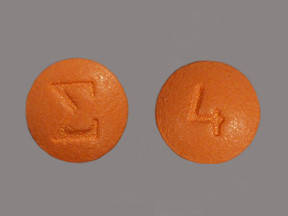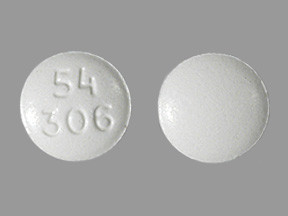PROTRIPTYLINE - ORAL
PHONETIC PRONUNCIATION: (pro-TRIP-ti-leen)
COMMON BRAND NAME(S): Vivactil
GENERIC NAME(S): protriptyline HCl
Uses
USES: This medication is used to treat mental/mood problems such as depression. It may help improve mood and feelings of well-being and increase your energy level. This medication belongs to a class of medications called tricyclic antidepressants. It works by affecting the balance of certain natural chemicals (neurotransmitters) in the brain.
How to use PROTRIPTYLINE - ORAL
HOW TO USE: Read the Medication Guide provided by your pharmacist before you start taking protriptyline and each time you get a refill. If you have any questions, consult your doctor or pharmacist. Take this medication by mouth, usually 1 to 4 times daily or as directed by your doctor. The dosage is based on your medical condition and response to treatment. To reduce your risk of side effects (such as dry mouth, anxiety, dizziness), your doctor may direct you to start this medication at a low dose and gradually increase your dose. Follow your doctor's instructions carefully. Take this medication regularly in order to get the most benefit from it. To help you remember, take it at the same time(s) each day. Do not increase your dose or use this drug more often or for longer than prescribed. Your condition will not improve any faster, and your risk of side effects will increase. It is important to continue taking this medication even if you feel well. Do not stop taking this medication without consulting your doctor. Some conditions may become worse when this drug is suddenly stopped. Also, you may experience symptoms such as mood swings, headache, tiredness, and sleep change. To prevent these symptoms while you are stopping treatment with this drug, your doctor may reduce your dose gradually. Consult your doctor or pharmacist for more details. Report any new or worsening symptoms right away. This medication may not work right away. You may see some benefit within a week. However, it may take up to 4 weeks before you feel the full effect. Tell your doctor if your condition persists or worsens (such as your feelings of sadness get worse, or you have thoughts of suicide).
Side Effects
Precautions
Interactions
Overdose
Images

- color
- white
- shape
- round
- imprint
- 54 694

- color
- dark orange
- shape
- round
- imprint
- logo and 96

- color
- light orange
- shape
- round
- imprint
- logo and 97

- color
- orange
- shape
- round
- imprint
- logo, 4

- color
- yellow
- shape
- round
- imprint
- logo, 7
Reviews
Faq for PROTRIPTYLINE - ORAL
Protriptyline is an oral medication that belongs to the class of drugs known as tricyclic antidepressants. It is primarily used to treat depression, but it may also be prescribed for other conditions such as bedwetting, attention-deficit hyperactivity disorder (ADHD), and nerve pain.
Protriptyline works by increasing the levels of certain chemicals in the brain, such as serotonin and norepinephrine. These chemicals help improve mood and relieve symptoms of depression.
Common side effects of Protriptyline may include drowsiness, dizziness, dry mouth, constipation, blurred vision, and difficulty urinating. It is important to inform your doctor if these side effects become severe or persist.
Protriptyline may take a few weeks or even longer to start showing its full effects. It is important to continue taking the medication as prescribed by your doctor, even if you do not notice immediate improvement.
Yes, Protriptyline may increase the risk of suicidal thoughts or behavior in young adults and children. It is important to closely monitor anyone taking this medication, especially during the first few weeks of treatment. Additionally, Protriptyline should be used with caution in individuals with a history of heart problems, seizures, liver or kidney disease, as well as those taking other medications that may interact with it.
The use of Protriptyline during pregnancy or breastfeeding should be discussed with a healthcare professional. It is generally not recommended unless the benefits outweigh the potential risks.
Protriptyline should be taken exactly as prescribed by your doctor. It is usually taken orally, once or twice daily with or without food. It is important not to increase or decrease the dosage without consulting your doctor.
No, Protriptyline should not be stopped abruptly. Gradual dose reduction under the guidance of a healthcare professional is recommended to avoid withdrawal symptoms.
Protriptyline may interact with other medications, such as MAO inhibitors, anticholinergic drugs, antihistamines, and certain blood pressure medications. It is important to inform your healthcare provider about all the medications you are taking to avoid potential interactions.
Warning
WARNING: Antidepressant medications are used to treat a variety of conditions, including depression and other mental/mood disorders. These medications can help prevent suicidal thoughts/attempts and provide other important benefits. However, studies have shown that a small number of people (especially people younger than 25) who take antidepressants for any condition may experience worsening depression, other mental/mood symptoms, or suicidal thoughts/attempts. Therefore, it is very important to talk with the doctor about the risks and benefits of antidepressant medication (especially for people younger than 25), even if treatment is not for a mental/mood condition. Tell the doctor right away if you notice worsening depression/other psychiatric conditions, unusual behavior changes (including possible suicidal thoughts/attempts), or other mental/mood changes (including new/worsening anxiety, panic attacks, trouble sleeping, irritability, hostile/angry feelings, impulsive actions, severe restlessness, very rapid speech). Be especially watchful for these symptoms when a new antidepressant is started or when the dose is changed.
Disclaimer
IMPORTANT: HOW TO USE THIS INFORMATION: This is a summary and does NOT have all possible information about this product. This information does not assure that this product is safe, effective, or appropriate for you. This information is not individual medical advice and does not substitute for the advice of your health care professional. Always ask your health care professional for complete information about this product and your specific health needs.

No Reviews Yet